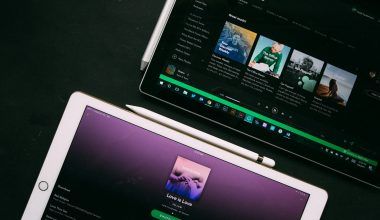If you’re a fan of music, you’ve probably come across the term “EP”. Maybe you’ve seen it in the title of an album or heard your favorite artist mention it. But what does EP mean in music? And how is it different from an album or a single? Don’t worry, we’re about to dive deep into the world of EPs and uncover everything you need to know. By the end of this blog, you’ll have a clear understanding of EPs and why they matter in the music industry.
EP Stands for “Extended Play”
To start with, let’s break down what EP actually stands for. EP means “Extended Play.” This term has been around for decades and was originally used to describe vinyl records that were longer than a single but shorter than a full-length album. Essentially, an EP is a mini-album. It’s longer than a single, which usually has just one or two songs, but it’s not as extensive as an album, which often includes ten or more tracks. Think of it as a middle ground between the two.
Why Do Artists Release EPs?
Now that you know what an EP is, you might be wondering why artists release them. There are many reasons! For one, EPs are a great way for artists to share new music without committing to a full album. Albums take a lot of time, effort, and resources to create. On the other hand, an EP is quicker and easier to produce, making it an excellent option for artists who want to release music more frequently.
EPs also allow artists to experiment. With fewer songs, they can try out new sounds or themes without risking too much. If fans love it, they know they’re on the right track. If not, they can pivot and try something else. In this way, EPs serve as a testing ground for creativity.
Another reason artists release EPs is to keep their fans engaged. In today’s fast-paced world, people are always hungry for new content. By releasing an EP, artists can stay relevant and maintain their presence in the music scene. Plus, an EP can generate buzz and build anticipation for a future album.
How Many Songs Are on an EP?
A common question people ask is, “How many songs are on an EP?” There’s no strict rule, but most EPs have anywhere from 3 to 7 songs. The total runtime is usually under 30 minutes. If it’s longer than that, it might be considered an album instead.
However, these numbers aren’t set in stone. Some EPs might have only two tracks, especially if they’re long and experimental. Others might have eight or more if the songs are short. Ultimately, what defines an EP isn’t just the number of songs but the overall length and intent behind the release.
The History of EPs
The concept of the EP dates back to the early days of vinyl records. In the 1950s, record labels began producing “extended play” records as a way to offer more music at an affordable price. These records were smaller than full albums but had more songs than a standard single. Back then, EPs were popular with fans who couldn’t afford full albums but wanted more variety than a single could provide.
Over time, the format evolved. In the 1980s and 1990s, EPs became a staple in punk and indie music scenes. Bands would use EPs to share their music with fans or to gain attention from record labels. Today, the EP is a versatile format that’s embraced by artists across all genres.
How EPs Differ from Albums and Singles
To truly understand EPs, it helps to compare them to albums and singles. Let’s break it down:
- Singles: A single is usually one song, sometimes accompanied by a B-side track. Singles are often released to promote an album or to give fans a taste of what’s to come.
- EPs: As we’ve discussed, an EP is longer than a single but shorter than an album. It’s a standalone release that can showcase an artist’s style, tell a story, or explore a theme.
- Albums: A full-length album typically has 10 or more tracks and lasts 30 minutes or longer. Albums require more time and effort to produce, making them a significant milestone in an artist’s career.
Why Fans Love EPs
Fans love EPs for many reasons. First, they’re easy to listen to. With fewer songs, EPs don’t require as much time or attention as a full album. You can listen to an EP during a short drive, while cooking dinner, or during a quick workout.
EPs also feel special. They’re often more focused than albums, with a clear theme or mood. This makes them perfect for fans who want to dive into a specific aspect of an artist’s music. And because EPs are less common than singles or albums, they can feel like a rare treat.
EPs in the Digital Age
The rise of digital music has changed the way we experience EPs. In the past, EPs were physical records or CDs. Today, they’re often digital releases available on streaming platforms. This makes them more accessible than ever. You can find EPs on Spotify, Apple Music, YouTube, and other platforms with just a few clicks.
Digital EPs also allow artists to experiment with formats. Some might release an EP as a series of singles over time, while others might drop all the tracks at once. Either way, the flexibility of digital distribution has given EPs a new lease on life.
Famous EPs That Made an Impact
Many iconic EPs have shaped the music industry. For example, The Beatles released several EPs in their early years, helping them gain a foothold in the industry. Nirvana’s “Bleach” EP introduced the world to their grunge sound. And more recently, artists like Billie Eilish and BTS have used EPs to connect with fans and showcase their evolution.
How to Discover New EPs
If you’re curious about EPs, there are many ways to discover them. Streaming platforms often have curated playlists that feature new and trending EPs. Social media is another great tool. Follow your favorite artists and keep an eye on their announcements. Many artists use EPs to tease new music or share projects that don’t fit into their albums.
Music blogs and websites are also excellent resources. They often review and highlight EPs that deserve attention. And don’t forget to explore genres you’re unfamiliar with. EPs are a great way to dip your toes into new musical styles.
Conclusion: Why EPs Matter
So, what are EPs in music? They’re more than just a format. EPs are a creative playground for artists and a treasure trove for fans. They bridge the gap between singles and albums, offering a glimpse into an artist’s vision without demanding too much time or commitment. Whether you’re a casual listener or a die-hard fan, EPs have something to offer. So next time you see an EP from your favorite artist, give it a listen. You might just discover your new favorite songs.
For further reading, explore these related articles:
- All About Major Lazer Songs: Why Everyone Loves Their Music
- Exploring Ed Sheeran’s South of the Border Lyrics
For additional resources on music marketing and distribution, visit DMT Records Pvt. Ltd..






